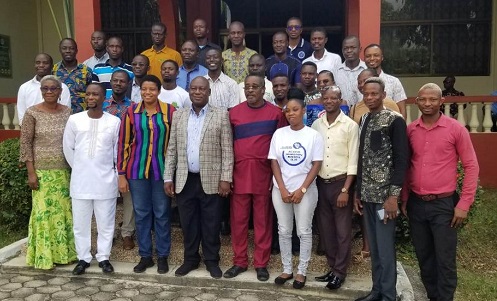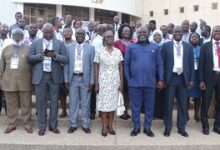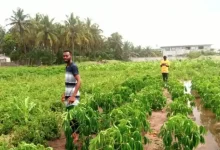
About 105 youth have been trained in the production of yam under the Economic Community of West African States (ECOWAS)’s strategy for youth employability in the agricultural sector to face rural exodus and uncontrolled migration.
They were also trained in the production of maize and rice as well as flour making.
With the support of the ECOWAS through the West and Central Africa Council for Agricultural Research and Development (CORAF), Crop Research Institute of the Council for Scientific and Industrial Research (CSIR-CRI, and the Agriculture Productivity and Technology Centre (APTC), the policy is expected to guarantee food security and secure decent incomes for agricultural workers.
At the ceremony, the Director of the CSIR-CRI, Prof. Moses B. Mochiah, said the training was the first of its kind under the ECOWAS strategy.
The four day training took participants through the Ghana seed system, good agronomic practices for seed yam production, integrated soil fertility management and integrated disease management.
Other topics included integrated weed management, integrated field and storage pest management, agribusiness financial management and business plan development for agribusiness enterprises.
He pointed out that the project would contribute in a sustainable way to meeting the food needs of the population, to economic and social development, to the reduction of poverty in the country and the member States.
Prof. Mochiah could not hide his praise for the ECOWAS and other partners for the opportunity to train the youth and expose them to opportunities in agribusinesses.
He urged the youth to take advantage of the opportunity to learn the new technologies in agriculture to better their lives, stressing “there are series of programmes lined up for the youth in agriculture.”
Prof. Emmanuel Otoo, yam production coordinator at the CSIR-CRI, stated that Ghana should not be importing yam, rice among others, “because we have the fertile land and expertise to produce such locally.”
He was not happy that 20 per cent of certified yam seed was being utilised by farmers for improved productivity in the country, though the quantity was not enough due to funding.
Prof. Otoo was hopeful that by the training of the youth, people would get to know the technologies and also be equipped with them(technologies) for multiplying the yam production to increase the quantity in the system, adding that “the only way to increase food security is to produce locally.”
On his part, Dr. Jonas Osei-Adu, APTC Coordinator, explained that the project would not financially support the youth in agriculture but would help them to develop business plan to source funding.
He also thanked the ECOWAS for the concept to ensure the youth embraced agriculture.
A participant, Peprah Garnet, was happy about the fact that they were introduced to aerologic farming techniques where plants are grown in the air without the use of soil, stressing there would be no need for large tract of land for cultivation.
FROM KINGSLEY E.HOPE, KUMASI






